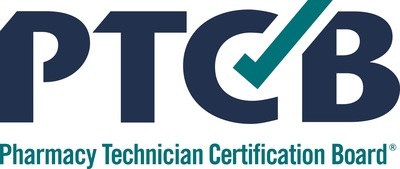|
08.03.2017 19:48:00
|
National Conference Of Pharmacy Stakeholders Seeks Consensus On Pharmacy Technician Qualifications
WASHINGTON, March 8, 2017 /PRNewswire-USNewswire/ -- Pharmacy and pharmacy technician leaders from multiple practice sectors gathered in Irving, Texas, February 14-16, to explore consensus on standards and qualifications for entry-level and advanced practice pharmacy technicians. Hosted by the Pharmacy Technician Certification Board (PTCB), the historic 3-day Pharmacy Technician Stakeholder Consensus Conference brought together more than 100 individuals on-site to provide input to PTCB and develop recommendations that support the evolution of pharmacy technician roles as pharmacists take on increasing responsibility for direct patient care. More than 350 additional pharmacy and pharmacy technician professionals participated by interactive webinar.

Participants included pharmacists, pharmacy technicians, educators, employers, state and national pharmacy associations, state boards of pharmacy, accreditors, and members of the general public. The conference featured keynote speakers, panel discussions, and daily work group sessions.
"PTCB's primary mission is to advance medication safety," said PTCB Executive Director and CEO Everett B. McAllister, MPA, RPh. "To do so, PTCB seeks input from the pharmacy community in the development of future pharmacy technician education requirements and qualifications for certification. The consensus conference outcomes will provide invaluable information from across the practice spectrum to guide future program decisions."
Larry Wagenknecht, BSPharm, RPh, Chair of the PTCB Board of Governors, and CEO of the Michigan Pharmacists Association, said conference participants focused on advancing patient safety throughout their deliberations. "This 3-day event provided an opportunity for our profession to listen to each other," he said. "Because of the diversity of sectors within pharmacy, there was a lot of work involved in coming to consensus, and because participants were committed to finding common ground, we made significant progress. We all have a responsibility to our patients to get this right."
In his keynote address, Michael A. Moné, BSPharm, JD, FAPhA, Vice President and Associate General Counsel for Cardinal Health, said, "We must respond to the expectations of the public and align on how to meet them. The public expects quality and safety from all members of the pharmacy team including technicians, an accountable method to measure core competencies, and a uniform standard for technicians."
Christopher Jerry, President and CEO of the Emily Jerry Foundation, described the tragedy he suffered when his 2-year-old daughter suddenly lost her life after a pharmacy technician prepared her chemotherapy solution using a fatal concentration of sodium chloride. Mr. Jerry said that after his daughter's death, he committed his life to bringing about change to prevent medication errors. "Medical errors are a leading cause of death in the US," he said. "The pharmacy profession must develop uniform standards for pharmacy technicians, and then articulate them to state boards. State boards of pharmacy understand the importance of public safety, but they need the collective support of the profession to be on the same page."
Four expert panels discussed the technician workforce, optimal requirements for entry-level technicians, opportunities in advanced technician practice, existing state-to-state inconsistencies in technician regulations, and successful models of standardization, including those in place in Canada and North Dakota.
Panelist Steve Rough, MS, RPh, FASHP, Director of Pharmacy at University of Wisconsin Health, said, "I expect the conference's work will yield significant value. The recommendations will provide a framework to unite the profession around the need for standardized entry-level technician education and training across all states, and for certification, registration, and/or licensure requirements by state boards. This will ensure a competent, professional technician workforce in the future to support expanded pharmacist patient care roles, improved patient care, and a more efficient health care system."
Participants broke into work groups to develop statements on educational requirements, reduction in state-by-state regulatory variations, recognition of competencies of advanced technicians, and the need for public confidence in pharmacy technicians' knowledge, skills, and abilities.
"A diverse group of stakeholders worked to identify middle ground and address important issues, such as the need for the profession to get on the same page regarding entry-level knowledge and uniform education standards for technicians," said Matthew Osterhaus, BSPharm, FAPhA, FASCP, Owner/Pharmacist, Osterhaus Pharmacy. "We found ourselves rallying around a common mission and reachable goals, while balancing the unique needs of each sector of the profession."
"The conference was a success because participants came from a range of practice areas, openly shared their views, and fully engaged in discussions," said PTCB CEO McAllister. "At the conclusion, attendees indicated a desire to speak with one voice, and work in parallel with state boards to advance patient safety."
PTCB planned the event in collaboration with the American Society of Health-System Pharmacists (ASHP), the Accreditation Council for Pharmacy Education (ACPE), and an advisory committee comprised of pharmacists and technicians representing various sectors of practice, technician educators from community and health-system-based training, national pharmacy organizations, and state boards of pharmacy. Results from a pre-conference, profession-wide survey informed conference deliberations. Conference proceedings and complete recommendations will be submitted for publication later this year.
Read this release on our website.
About PTCB
PTCB is the leading certifying body for pharmacy technicians in the US, and has granted more than 610,000 certifications since its founding in 1995. PTCB's mission is to advance medication safety by certifying technicians who are qualified to support pharmacists and patient care teams in all practice settings. PTCB was established by the American Pharmacists Association; American Society of Health-System Pharmacists; Illinois Council of Health-System Pharmacists; and Michigan Pharmacists Association; and joined in 2001 by the National Association of Boards of Pharmacy. PTCB advocates a single national standard for pharmacy technician certification that is recognized and supported by the pharmacy profession. PTCB's national Certification Program services more than 283,000 active Certified Pharmacy Technicians (CPhTs) nationwide. Visit www.ptcb.org.
To view the original version on PR Newswire, visit:http://www.prnewswire.com/news-releases/national-conference-of-pharmacy-stakeholders-seeks-consensus-on-pharmacy-technician-qualifications-300420479.html
SOURCE Pharmacy Technician Certification Board
 Der finanzen.at Ratgeber für Aktien!
Der finanzen.at Ratgeber für Aktien!
Wenn Sie mehr über das Thema Aktien erfahren wollen, finden Sie in unserem Ratgeber viele interessante Artikel dazu!
Jetzt informieren!